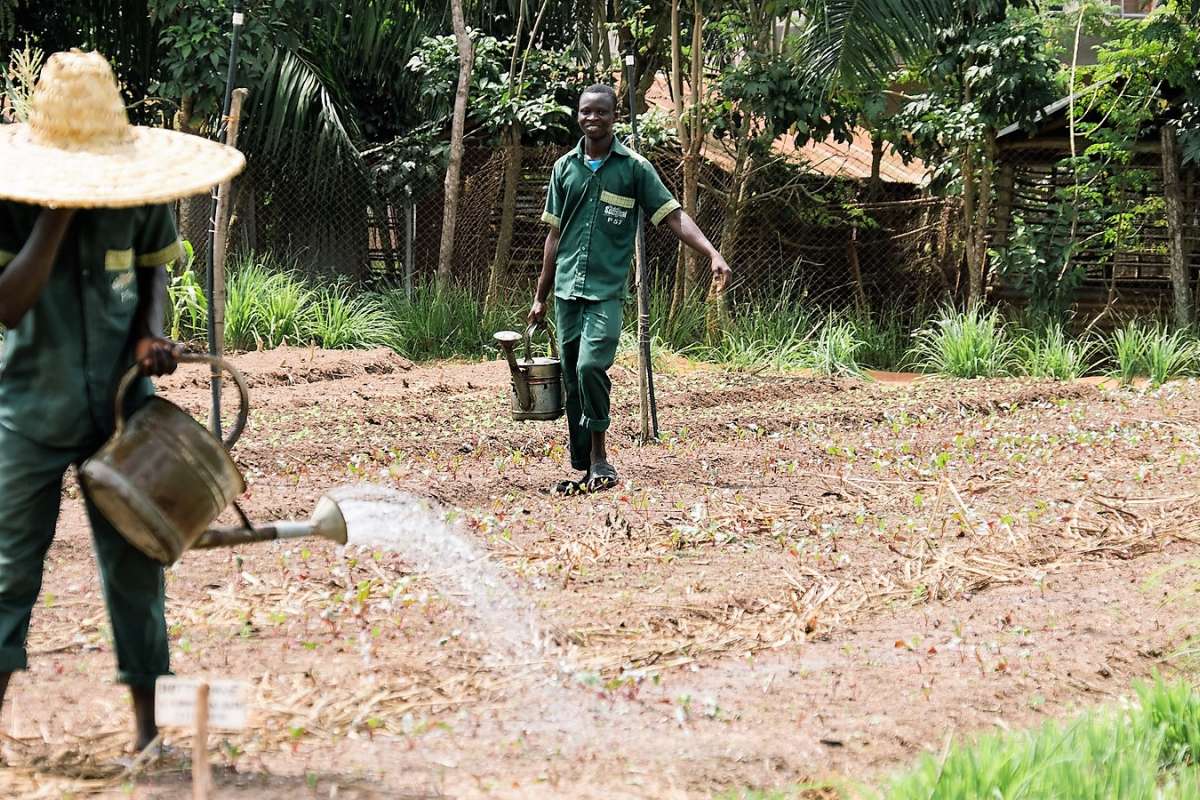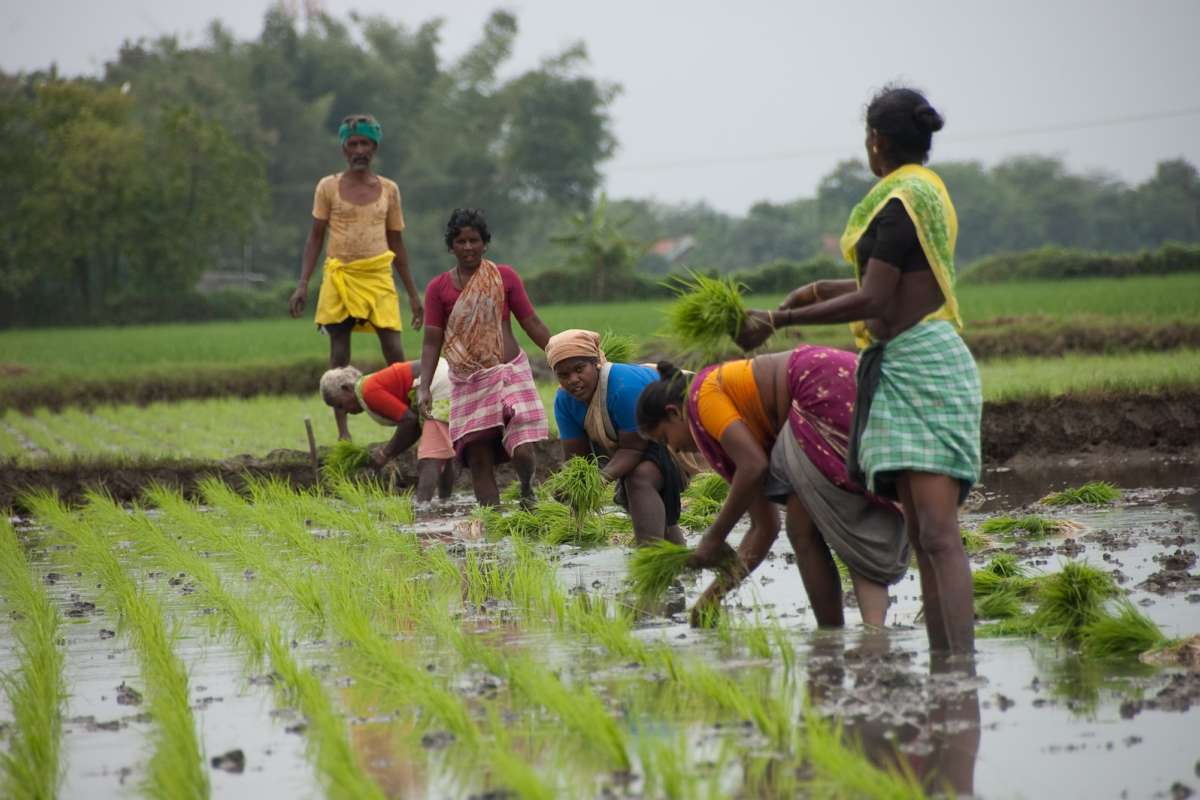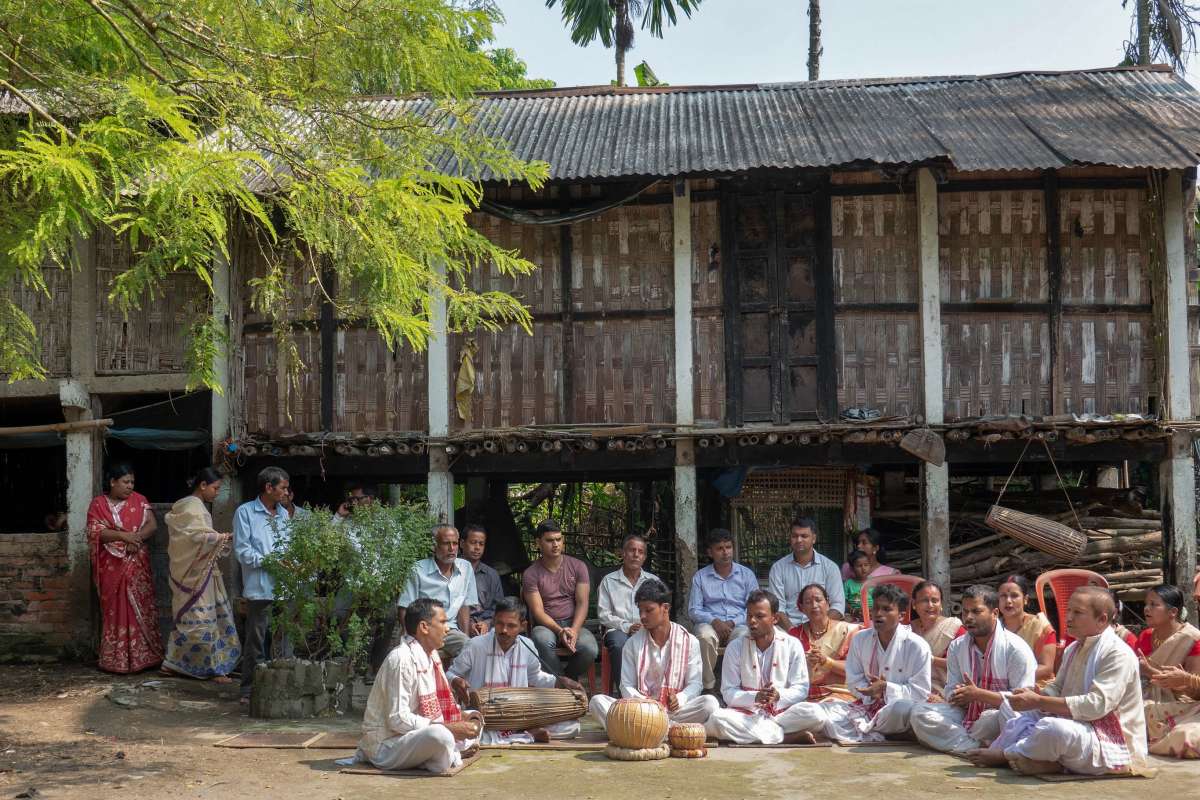Increased climate resilience and higher yields: Promising project results from India
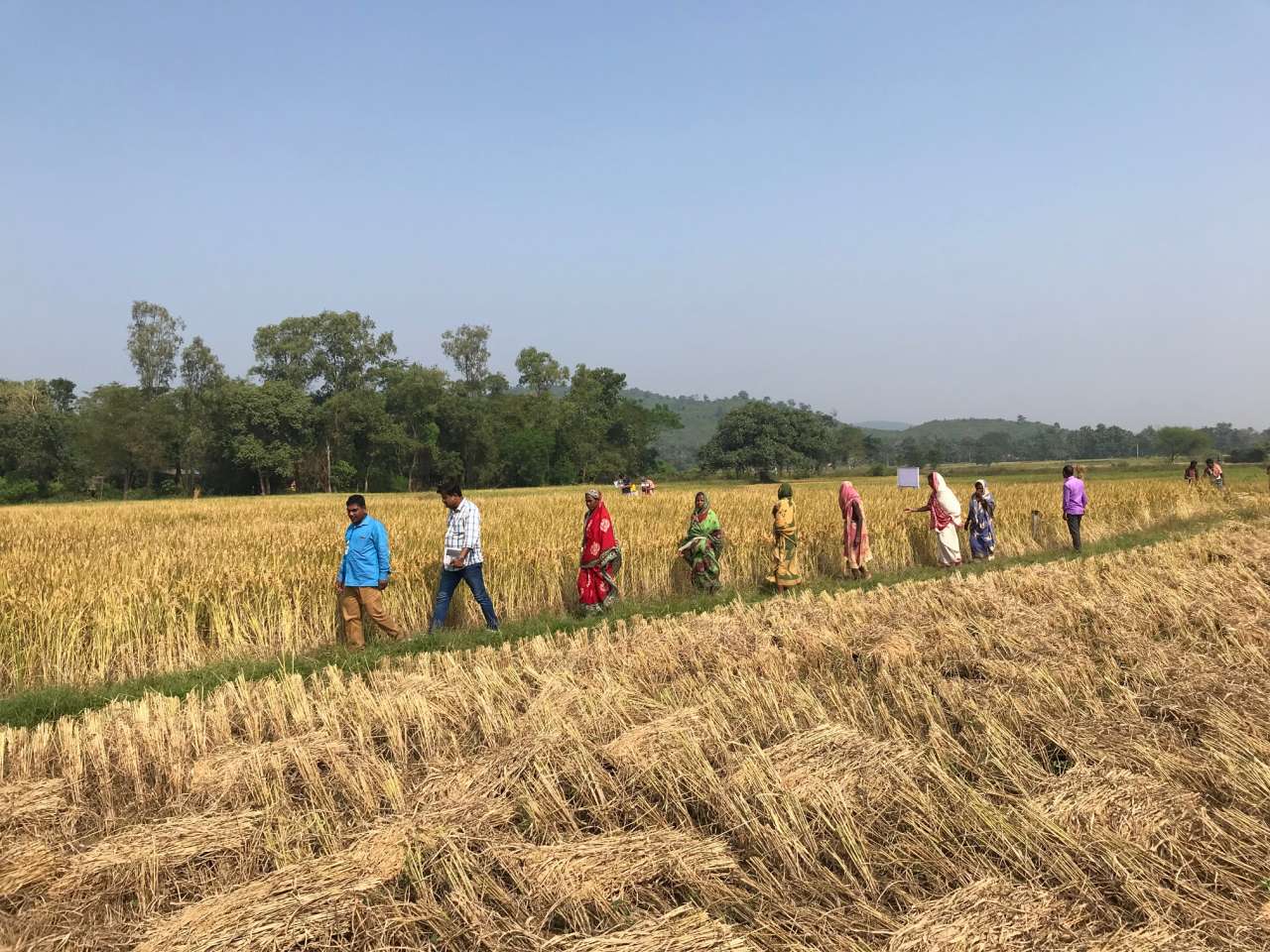
Farmer community led demonstration of climate resilient rice varieties in Abhayapur village. Photo: Udaya Sekhar Nagothu.
One year on, results from the Resilience project in India show higher yields following the implementation of new agronomic practises and improved climate resilient rice varieties. Further activities which address food and nutrition security are being carried out, along with the development and use of innovative digital applications to enhance precision-based agriculture.
In November, the Resilience project partners and stakeholders participated in the first annual review meeting and field exposure visits to Tangi block, Cuttack district in Odisha state in India. During the field visit, stakeholders and project partners were shown farmer community led on-farm demonstrations of selected Climate Smart Agriculture (CSA) interventions. Row planting of rice seedlings is new to the area, and one of the practices which was introduced, along with short duration rice varieties in the village Abhayapur.
So far, the feedback from farmers has been positive and progress good. Among other things, results show that the smallholders who have implemented the recommended new practises achieved higher yields during the first season.
Dr. Udaya Sekhar Nagothu, Director at the Centre for International Development at NIBIO, says that the project’s success is due to the fact that the project is systematically planned and engages stakeholders throughout. Cross-disciplinarity is another key factor.
“The project emphasis now is among other things to develop innovative digital applications to enhance precision-based agriculture further,” he says.
“This is highly relevant in terms of addressing challenges which can arise for smallholders due to climate change.”

Row planting of rice seedlings increase yields
Recently, Mr. Jaganath Bal, one of the project lead farmers from the village Abhayapur, applied row planting of rice seedlings in his field. After shifting to row planting with improved varieties, his yield increased from 3-4 tonnes/ha to 5-6 tons/ha.
Mr. Bal has also experienced that the advantages of row planting allows for relatively easy weeding and harvesting operations.
“I’m keen to continue applying the row planting and other recommended agronomic practises,” he says and adds that several farmers from neighbouring fields have already visited him and asked him for improved seeds supply.
VKC’s and KVK’s in close collaboration
For the past year, around 650 smallholders have been connected through the Village Knowledge Centre (VKC) which is located in Cuttack district. The VKC works closely with the Krishi Vigyan Kendras (KVK’s) in the area, innovative farm science centres which serve as a link between the Indian Council of Agricultural Research and farmers, with a main aim to apply agricultural research in a practical, localized setting.
Overall, 10,000 farmers have been connected through the five VKC’s established in different project sites.
“The VKC’s and the KVK’s provide various services to farmers. This includes the dissemination of agriculture-related information and weather-related information collected from the Indian Meteorological Department,” Dr. Nagothu says.
The comparative advantage of VKC’s includes the dissemination of short voice messages by SMS. This is an effective and timely way to reach smallholders, especially those who are unable to read.
“We now see that the KVK’s have also started using some of the dissemination methods developed by the VKC when training farmers in their farmer training centres;” Dr. Nagothu says.
Several income generating activities carried out by women
Other activities which are being implemented in the Resilience project areas in the Cuttack district include so-called NutriGarden interventions which enhance the nutritional aspects of food security by planting a variety of fruit trees along with vegetables around homesteads. Value addition of agricultural products and income generating activities by Women Self Help Groups are also being carried out.
“The activities included in the project are oyster mushroom cultivation, apiculture, small poultry farming and the production of vermicompost,” Dr. Nagothu says.
“Activities such as these, which ensure active female involvement in agriculture, are vital to improve the livelihoods of smallholders in areas especially vulnerable to climate change,” he adds.
Contacts

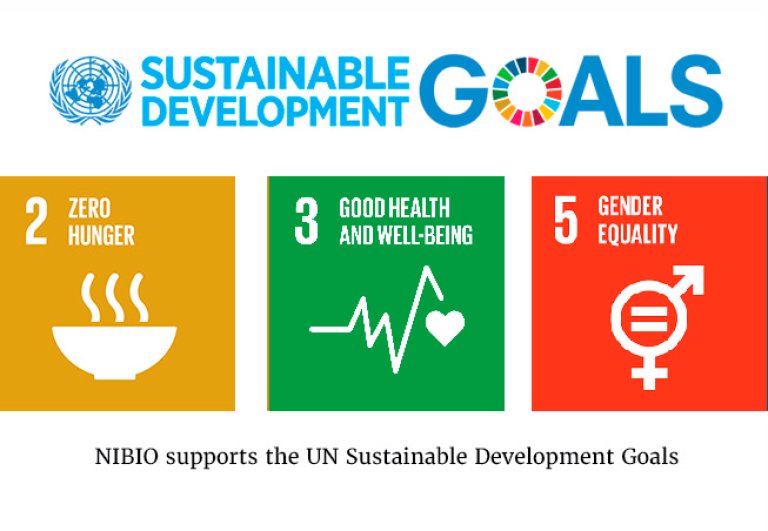
RESILIENCE PROJECT
RESILIENCE - Building Climate Resilience of Indian Smallholders through Sustainable Intensification and Agroecological Farming Systems to Strengthen Food and Nutrition Security.
Website: www.resilienceindia.org
Overall goal:
Improve agricultural productivity, adaptive capacity and livelihoods of smallholders to climate and economic changes, by building resilience and strengthening the agri-product market value chains.
Partners:
NIBIO - Norwegian Institute of Bioeconomy Research (Coordinator)
AAU - Assam Agricultural University
NRRI - National Rice Research Institute
OUAT - Orissa University of Technology and Agriculture
IWMI - International Water Management Institute
MSSRF - M. S. Swaminathan Research Foundation
Total budget: 24.6 million NOK
Funded by:
The Ministry of Foreign Affairs - the Royal Norwegian Embassy in New Delhi, India.
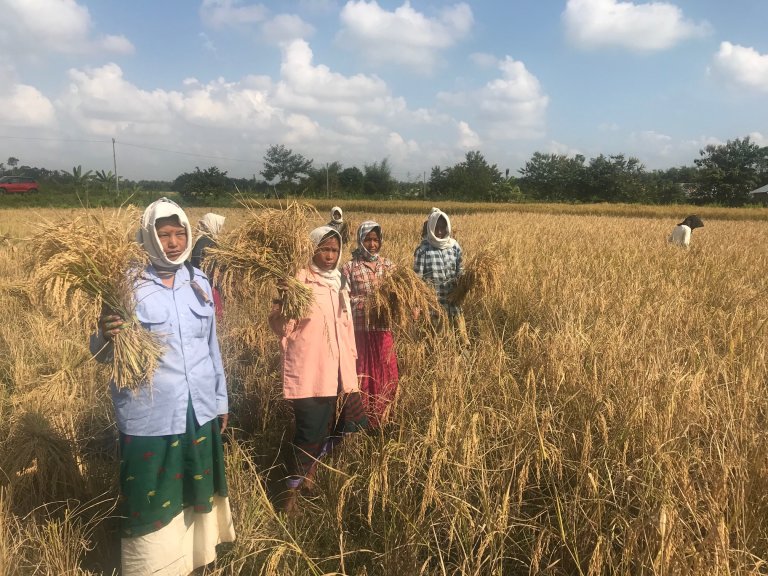
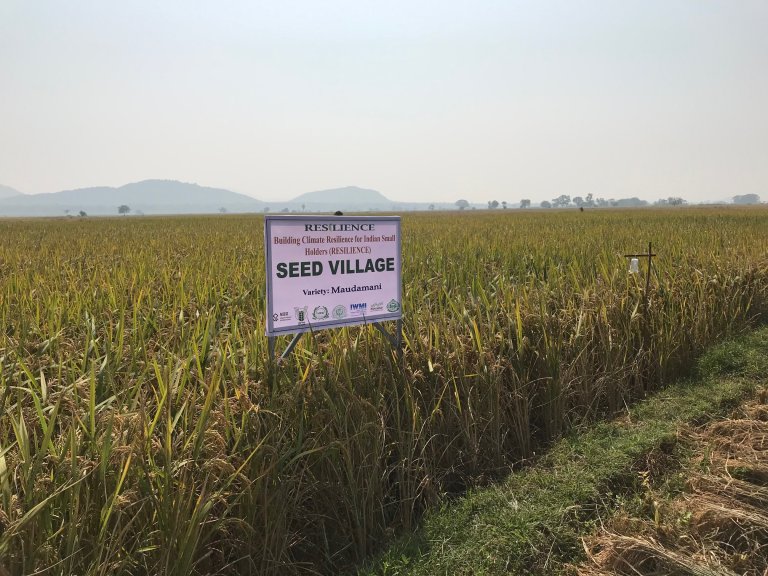
Contacts


